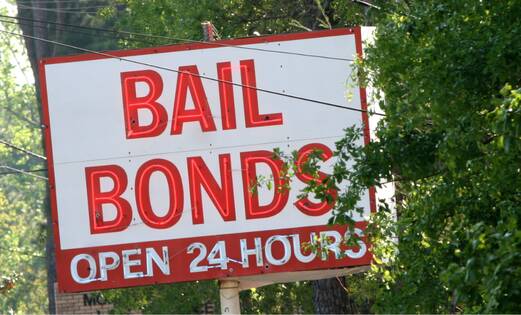Collateral in Bail Bonds: What You Can Use and How It Works
When someone is arrested, they may be given the option to post bail, allowing them to stay out of jail while awaiting their court date. However, the cost of bail can be quite high, and not everyone can afford to pay the full amount in cash. This is where bail bonds come in. To secure a bail bond, most people need to provide collateral. But what exactly is collateral, and how does it work in the bail bond process? Let’s break it down in simple terms.
What Is Collateral in Bail Bonds?
Collateral is something of value that you offer to a bail bondsman as a form of security for bail bonds. It acts as a guarantee that you will show up for your court date. If you fail to appear in court, the collateral can be seized by the bail bond company to cover the cost of the bail. In other words, collateral reduces the risk for the bondsman by ensuring they won’t lose money if the defendant doesn’t fulfill their obligations.
Why Is Collateral Needed?
When a bail bondsman posts bail on behalf of a defendant, they are taking on a financial risk. If the defendant doesn’t show up in court, the bail amount is forfeited, and the bondsman loses the money. By requiring collateral, the bondsman protects themselves from this potential loss. The collateral serves as a safety net, assuring them that they can recover their money if things don’t go as planned.
What Can Be Used as Collateral?
Several types of assets can be used as collateral for a bail bond, including:
- Real Estate: This is one of the most common forms of collateral. It includes houses, land, or any property with equity value. The property deed is temporarily signed over to the bail bond company until the case is resolved.
- Vehicles: Cars, motorcycles, boats, and other vehicles with clear titles can be used as collateral. The vehicle should be fully paid off and in good condition.
- Jewelry and Valuables: High-value items such as gold, diamonds, and luxury watches can also be used as collateral. These items are appraised to determine their value before being accepted.
- Bank Accounts and Stocks: Some people use savings accounts, certificates of deposit, or stocks as collateral. The bondsman holds these financial assets until the court case concludes.
- Personal Property: In some cases, expensive electronics, collectibles, or other valuable personal belongings may be accepted as collateral.
- Credit Cards: Some companies offering bail bonds Greenville, NC, allow credit cards to be used as collateral, charging the bail amount to the card if necessary.
How Does It Work?
The process is straightforward:
- Evaluation: The bail bond company evaluates the value of the collateral to ensure it is worth the bail amount.
- Agreement: An agreement is signed, stating that the collateral will be returned once the defendant fulfills their court obligations.
- Release: The defendant is released from jail after the bail is posted.
- Return of Collateral: If the defendant attends all court dates, the collateral is returned in full once the case is over.
- Forfeiture: If the defendant skips court, the bail bond company has the right to seize the collateral to recover their losses.
Conclusion
Collateral is an essential part of the bail bond process, helping people secure their release from jail while awaiting trial. It provides security to the bondsman while giving defendants a chance to stay out of custody. If you or a loved one needs help with bail bonds, reach out to a trusted bail bond company to learn about your options and find the best solution for your situation.






Leave a Reply